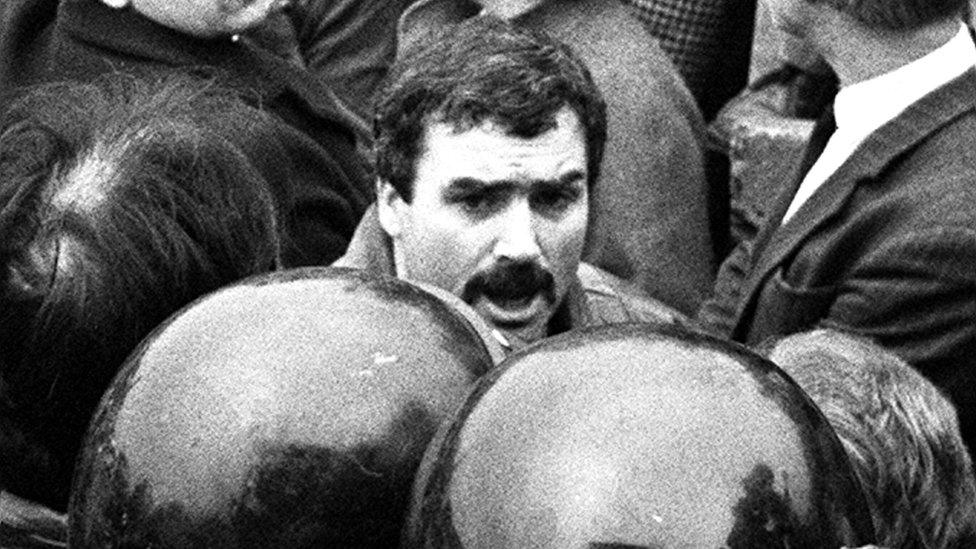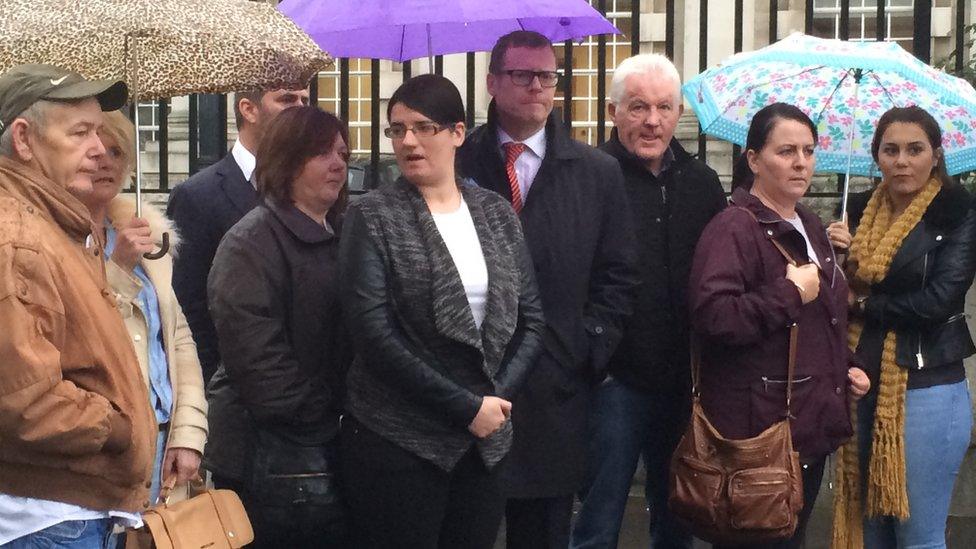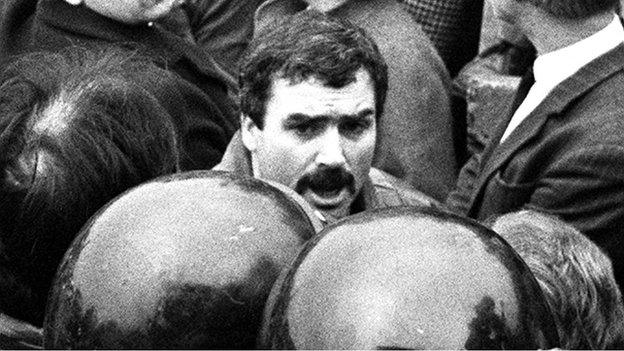Stakeknife inquiry: Relatives go to court for outside investigators
- Published

West Belfast man Freddie Scappaticci has denied he was an army agent
A west Belfast man was allowed to engage in a "murderous campaign" to strengthen his position as a British spy, the High Court has heard.
Lawyers for victims' relatives made the claim against a man named as Freddie Scappaticci. They want an outside police force to look at 24 killings.
Northern Ireland's director of public prosecutions has ordered a new inquiry into the agent, codenamed Stakeknife.
Mr Scappaticci denies he was an IRA informer, operating as Stakeknife.
'Intelligence asset'
Although relatives of those allegedly killed by the IRA's so-called 'Nutting Squad' have backed the fresh inquiry, they are opposed to the Police Service of Northern Ireland taking charge.
Judicial review proceedings brought by the family of Caroline Moreland are now focused on ensuring outside investigators are brought in.
Ms Moreland, a 34-year-old Catholic mother-of-three from Belfast, was abducted and murdered by the IRA in July 1994 for being an alleged British informer.

Families and their legal representatives gave their reaction outside the court
A barrister for her family told the court: "This challenge concerns at its core a murderous campaign that a named individual, Mr Frederick Scappaticci, was allowed to engage upon whilst managed by the security forces in order, we say, to enhance his position as an intelligence asset."
The families' opposition to PSNI involvement in the inquiry is based a perceived lack of independence and the availability of resources.
Due to the director of public prosecution's intervention, the families' barrister sought an adjournment to allow time for investigators to be identified.
'Political implications'
A barrister for the PSNI chief constable agreed that proceedings should be put on hold.
The court also heard there were resource issues and potential political implications.
Granting a four-week adjournment, Mrs Justice Keegan said: "Given the issues raised about delay, I'm keen to keep some timetable."
Outside court, Ms Moreland's daughter, Shauna, said the families had taken a step in the right direction.
"We just don't have faith in the PSNI to investigate any further," she said.
Her solicitor said the action went right to the upper echelons of British military intelligence.
Referring to the possible political implications raised in court, he said: "It demonstrates the level to which this case goes."
- Published21 October 2015

- Published21 October 2015
